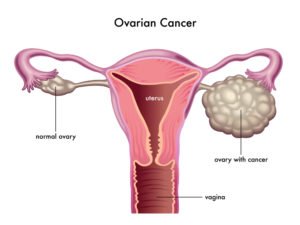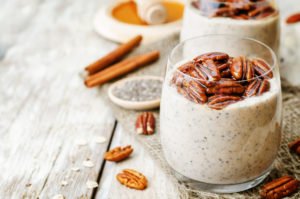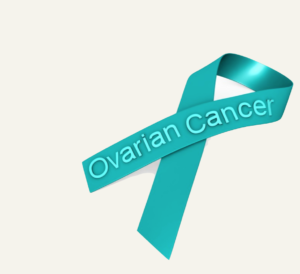Cancer, named by Hippocrates as “Karkinos” actually refers to a giant red crab in Greek mythology. Eating crab legs (something I haven’t done in years) will never be the same now that you know this useless fact but anyway… cancer means that there is uncontrolled cell growth, termed proliferation.
Cancer strikes fear into the heart of millions of people each year. In 2016, there were 1,685,210 new cases of cancer diagnosed in the United States, and almost 600,000 people will die from some form of the disease. In 2020, it’s estimated that expenditures will hit 156 billion dollars.
Early detection is absolutely crucial to getting well, but that’s not to say that a late diagnosis can’t be helped. Every case is different. Once diagnosed, people are often motivated to alter the number of chemicals in their life, change their diet and lifestyle and sometimes close the chapter to toxic relationships.
20/20 hindsight occurs, like with my dear brother Danny, who had chronic low back pain and dismissed it. Sadly, it was one of several plaguing symptoms that was connected to colon cancer and he realized this after his diagnosis. Checking this symptom out when it first occurred might have prolonged his life.
My brother was a secret, and I loved him very much. If you’d like to read more about us, our relationship and his ultimate passing last year, CLICK HERE. Momentarily, I am going to tell you about a common symptom that you might have which could be tied to ovarian cancer.
No one is immune from hearing the word if they live long enough, especially in a day and age where environmental and food pollutants abound. And then there’s cosmetic ingredients as well, such as talc. There was a woman who passed away from ovarian cancer in 2015, and her family was paid $72 million dollars as a result of this talcum powder lawsuit! That’s according to Medscape.com and the company’s spokesperson has given her statement regarding the safety of talc HERE.
My article today is about ovarian cancer, not talc so I’ll continue in that venue. New clinical trials and scientific articles have been popping up over the past year about medications and their benefit to ovarian cancer. For example, the medication class of statins (used for cholesterol management) have been investigated for their chemoprotective role, which is good.
Some studies support this, like the 2015 study published in the Journal of Gynecologic Oncology which hints at positive benefit and concludes, “… that statins impact on ovarian cancer warrants further investigation with larger randomized controlled trials as observational studies are subject to bias…”
And a more positive study such as the retrospective population based study which included over 5,400 women. The researchers concluded, “In this large nation-wide cohort of ovarian cancer patients post-diagnostic use of statins was associated with improved survival.” This was published in PLoS One, December 2019.
Other studies are not so positive, and in years past, there has been heated roundtable discussions about them raising risk for ovarian cancer, but maybe put that to rest. A brand new Finnish study (February 2018) might give you more peace of mind if you want to try statins, because their use was not correlated with ovarian cancer, at least according the British journal called BJOG which is also known as the British International Journal of Obstetrics and Gynecology.
Furthermore, this same study evaluated metformin, an incredibly popular medication for type 2 diabetes. Again, no connection or upswing in cancer rates when reviewing 137,000 women over age 40 between the years of 1996 and 2011. About 300 women had been diagnosed with ovarian cancer during that time frame, so they are not pinning that on metformin or statin use.
The other news for women is this. You might be able to detect it sooner if you don’t ignore this common symptom. It’s bloating. It’s also feeling full really fast.
Ovarian cancer symptoms are often mild, but persistent so listening to your body is crucial. Feeling and looking bloated for a long time, or feeling full quickly and fatigued easily, these are all early signs and symptoms that are worthy of investigation. If you experience those symptoms, it obviously doesn’t mean you have cancer, in fact, you probably don’t!
But if you do have ovarian cancer, you will more than likely have those symptoms at some stage.
Many women are stunned to hear they have ovarian cancer, because for years it was dubbed a “silent” cancer, sneaking up on women without a single hint. But again, this new finding points to long-term bloating as an early warning sign.
The bloating is not the typical kind of bloating (or gas) that you everyone gets now and then with food intolerances, or your menstrual cycle, or perhaps after eating vegetables and beans. So again, the “ovarian bloat” doesn’t generally come and go like the type of bloating that is related to digestive problems. The type of bloating they’re referring to is the kind that does not go away, it is chronic. I think that’s important because I don’t want to alarm any of you reading this today. Having the BRCA1 or BRCA2 gene SNP expressing will also raise risk.
Other signs and symptoms of ovarian cancer may occur. The degree of severity and the type of symptom differs depending on the type of ovarian cancer, the woman’s age and the stage:
- Persistent pelvic pain
- Abnormal uterine bleeding
- New onset acne
- Facial hair growth – due to rising estrogen
- Abnormal vaginal discharge
- Chronic abdominal discomfort
- Unexplained and persistant back pain
- A change in bowel habits
- Need to urinate more frequently
- Difficulty eating because you feel full quickly
- Queasy feeling
- Fatigued or short of breath
- Persistant bloating
Diagnosing It
I’m not a physician so please ask your own doctor. Nothing I say in my opinion column should be regarded as medical advice. Your doctor will often palpate or feel your belly for any signs of swelling or lumps, they will refer you to a gynecologist who can do more tests. There are blood tests involved, one of the most common ones is called the CA125. It tests for an enzyme, and you want the number to be in the low range, not elevated.
I had this test done because I test pretty much every thing I write to you about. I feel it’s important to test things so that I can talk about it with some degree of knowledge and warn you in advance about timing and precautions. With this test, you do not have to fast, and the timing of it does not matter (morning or afternoon is fine).
It’s just a regular blood test and results came back within a week, thankfully negative.
Doctors also sometimes do an ultrasound to ‘see’ inside your pelvic area. There are other tests as well and these depend on the staging of the cancer. For example, Stage 1 is the best stage because that is early onset, and even stage one can be further divided based on whether the cancer is in one ovary, both ovaries or if it’s the inside and outer surface of the ovary. It’s more complex than this, but you get the point.

Stage 2 suggests spreading of the cancer from the ovaries to other areas, and so forth. Women who take the drug tamoxifen are sometimes concerned about risk of ovarian cancer. This is a very popular treatment for breast cancer, or prevention. If you take the medication, please research and ask your doctor about it because I am uncertain how it impacts your exact situation. In women with breast cancer who have BRCA1 mutations, the drug does not appear to increase risk. Studies are decidedly mixed, and researchers are still reviewing all the data.
Tamoxifen is sometimes used to treat ovarian stromal tumors but not advanced epithelial ovarian cancer. The goal of therapy is to keep circulating estrogen down, so it doesn’t stimulate cancer proliferation.
I’m not going to elaborate on these natural remedies today, so please investigate them on your own. These are all things that I personally suggest to support a woman’s reproductive health. By no means am I suggesting these as a cure. I’m just letting you know about things that can put a little love and TLC (as in Tender Loving Care) into your reproductive parts.
7 Natural Remedies for Ovarian Health
1. Medicinal Mushrooms
Medicinal mushrooms, things like Reishi, Cordyceps, Lion’s Mane, Maitake and others. These are called “anti-cancer mushrooms” by holistic doctors and exhibit direct antifungal, antiviral and tumor shrinking abilities. Some slow down angiogenesis. I’m not sure if any of these are right for your individual health, so do check with your doctor. These types of supplements are sold at Chinese or Acupuncture apothecaries, online and at health food stores everywhere.
2. Chia and Flax seeds
Lignans are anti-cancer compounds found in plant foods so vegetarians have an advantage compared to meat-eating counterparts. Flax and chia seeds have the the highest levels of lignans. Studies suggest that eating plant-based foods rich in lignin’s reduces risk of breast cancer and other reproductive tumors. See my recipe for “Oat Chia Seed Pudding with Banana and Honey Glazed Pecans” by CLICKING HERE.

3. Turmeric
This is a spice commonly used in Indian cuisine, and sold in supplements for potent anti-inflammatory properties. I cannot think of a single other compound that has been more studied than turmeric/curcumin in recent years. It has strong anti-cancer properties. You can sprinkle the spice on foods, or you can purchase supplements of turmeric or an active ingredient called curcumin. I’ve briefly mentioned this fantastic spice in some of my other blogs, such as THIS article on Dopamine and Depression, as well as THIS article regarding reverse T3 lab tests and your thyroid.
4. Resveratrol
I’d supplement with this, rather than drink every night. It’s the ingredient found in the skin of grapes and apples. This was a bold headline, and I’m not saying I agree with it, but I want you to have this article to read as an option, entitled “Resveratrol Kills Cancer Cells.”
5. Green Tea
In January of 2018, a study published in Reproductive Biology January 2018, proved that green tea extract could cause ovarian cancer cells to die off faster. This is termed apoptosis. The study was done in swine (pigs). The study evaluated the proliferation speed and apoptotic markers and found that pigs given the highest dose (200 mcg/ml) of green tea extract accumulated more Caspase-3 and P53 in cells. Caspase-3 and p53 are the good guys in that they play an important role in chemotherapy-induced apoptosis for many cancers, not just ovarian.
So green tea activating these two compounds in the pigs caused the cancerous cells to retreat. Essentially, this data correlates with ovarian cancer cells retreating! Can it do in women with ovarian cancer, and if so, to what degree? It’s a good question. If you’d like to read my article entitled, “What Can Green, Black and Lemongrass Tea Do for You?” please CLICK HERE.

6. Iodine
The deficiency of iodine seems to correlate with reproductive cancers in many well-designed trials. Iodine is a natural mineral similar in ways to magnesium, calcium and selenium. Iodine’s primary task is to maintain normal structure and function of the endocrine glands which include your thyroid, breasts, pancreas, prostate, testicles, uterus and you guessed it… the ovaries!
There isn’t an organ in the body that does not require iodine, yet millions of women are iodophobic (afraid of iodine). That’s another article entirely which you can read by CLICKING HERE, and it’s called “Why Salt is Not Enough – Clearing the Iodine Confusion.”
When iodine deficiency occurs, the first thing that happens to someone is that you might get a cyst or nodule there. For example, fibrocystic breasts, or ovarian cysts. Over time, iodine deficiency causes the nodules to increase in density making them harder and more profound, and the final result is dysplasia and/or cancer. Iodine, like compounds in green tea have the ability to raise Caspase-3 and P53, so it causes apoptosis (a good thing!)
Simple tests exist to see if you’re iodine deficient, such as a 24 hour urine collection. This is much better in my opinion than an iodine spot test on your skin which virtually everyone will fail. The urine test is more accurate. Iodine is very easy to supplement with, what you want is an iodine complex, such as iodine-iodide.
7. Selenium
Since 2004, we’ve known that consuming selenium might be helpful if you are on chemo for ovarian cancer. The study was published in Gynecologic Oncology and found that the “patients with ovarian cancer undergoing chemotherapy and receiving Se showed a significant increase in the activity of ….”
Can you guess?
Glutathione!
Selenium is essential for glutathione production. Selenium is also known to support thyroid health by suppressing TPO antibodies which become elevated if you have Hashimoto’s disease. Selenium is found in Brazil nuts in very high amounts. Would you like to read more about selenium? I’ve mentioned it a few times in my blog, “What Your Doctor Should Have Ordered Instead of Those Pills” and you can CLICK HERE to read that whenever you have time.
So selenium is needed in your body to make glutathione which is a liver enzyme you make that is critical in DNA health and detoxification. Glutathione is known as a potent antioxidant that helps protect your cells from harmful cancer-causing free radicals. Selenium is easily depleted by medications you take, via the “drug mugging” effect. A classic example is how acid blockers raise pH in your gut and suppress your ability to absorb selenium. Another example is with antibiotics which impact your probiotic status (ie your intestinal flora) thus inhibiting your ability to absorb selenium. The food grade form of selenium supplementation is what you’re looking for as in “selenomethionine.” It’s in my shop if you’re interested, and it’s sold widely at health food stores and on Amazon as well.
There are dozens of medications which impact your selenium status (and magnesium, calcium, vitamin D, melatonin, etc). Do you want to know what they are? Please refer to your copy of my book, Drug Muggers which you likely have if you read my blogs routinely. If not, check it out here on Amazon.
 There you are, seven natural ways to take care of your precious ovaries. If you’re struggling with ovarian problems, do personal research because new compelling treatments, natural remedies and anti-cancer therapies are constantly being evaluated and released. Ask your doctor about the options above and if they’re right for you. If you already have ovarian cancer, keep the faith, there are new treatments about to launch, and there is always hope.
There you are, seven natural ways to take care of your precious ovaries. If you’re struggling with ovarian problems, do personal research because new compelling treatments, natural remedies and anti-cancer therapies are constantly being evaluated and released. Ask your doctor about the options above and if they’re right for you. If you already have ovarian cancer, keep the faith, there are new treatments about to launch, and there is always hope.

Suzy Cohen, has been a licensed pharmacist for over 30 years and believes the best approach to chronic illness is a combination of natural medicine and conventional. She founded her own dietary supplement company specializing in custom-formulas, some of which have patents. With a special focus on functional medicine, thyroid health and drug nutrient depletion, Suzy is the author of several related books including Thyroid Healthy, Drug Muggers, Diabetes Without Drugs, and a nationally syndicated column.
